"100 Ways to Consider Time"
Marilyn Arsem in conversation with Raegan Truax
Stanford Humanities Center
May 24, 2016
Photos by Steve Castillo
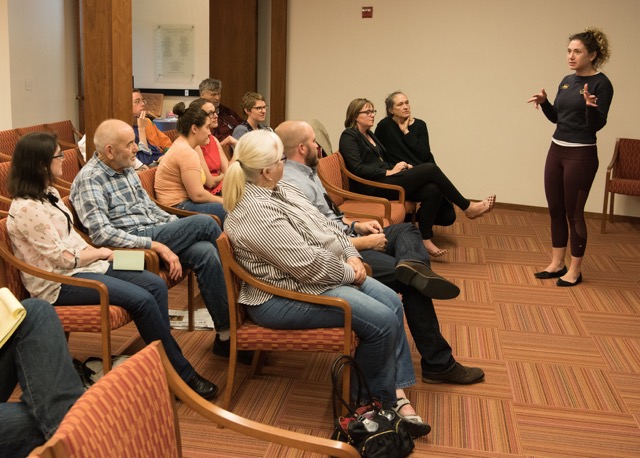
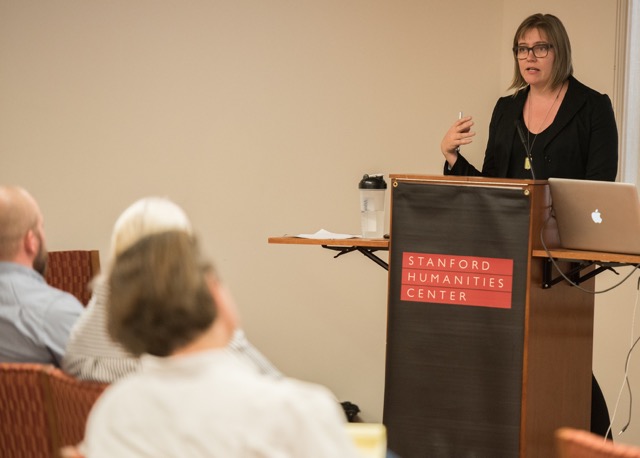
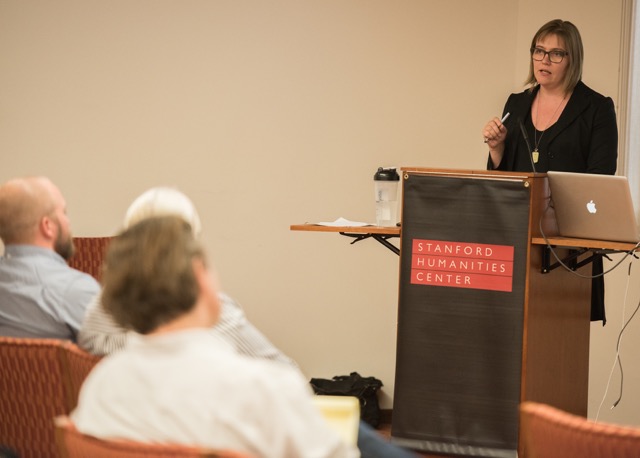
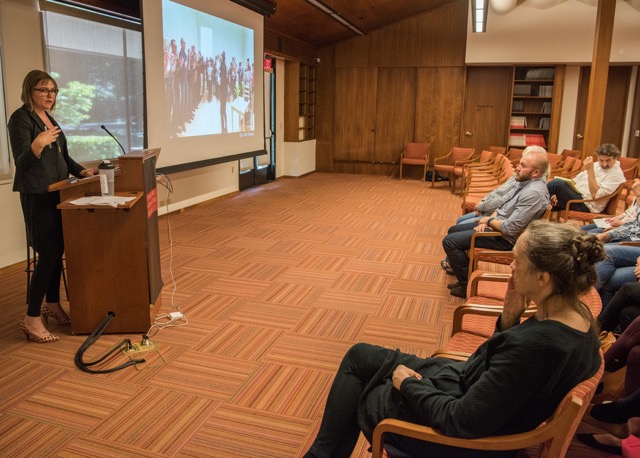
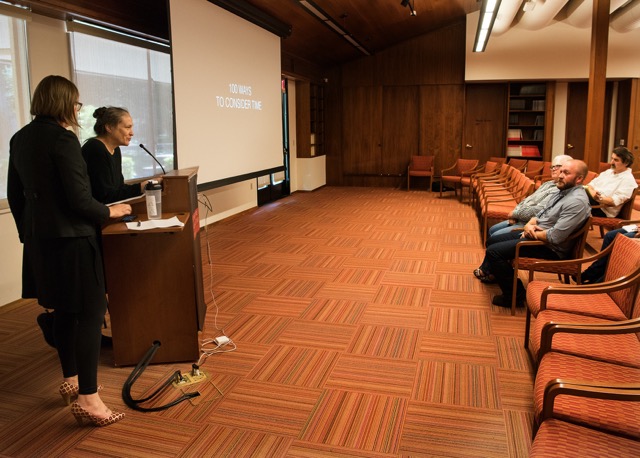
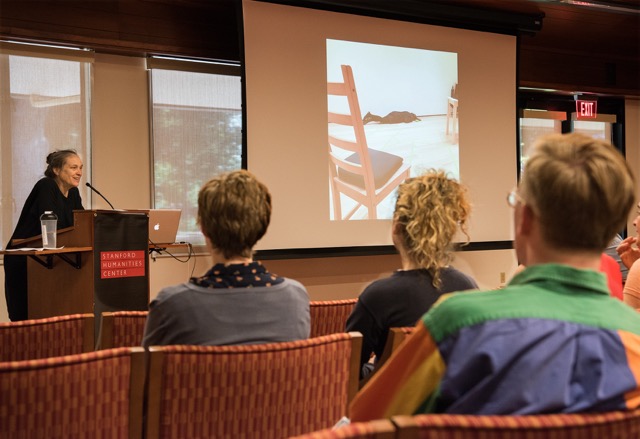
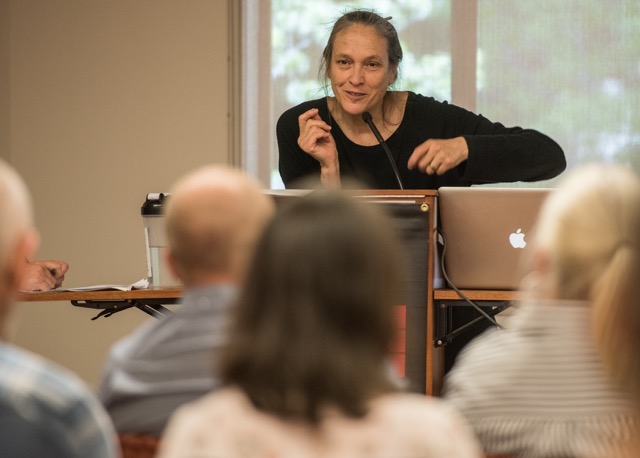
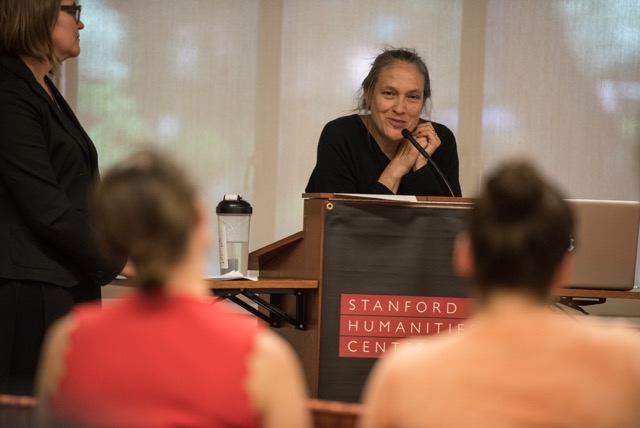
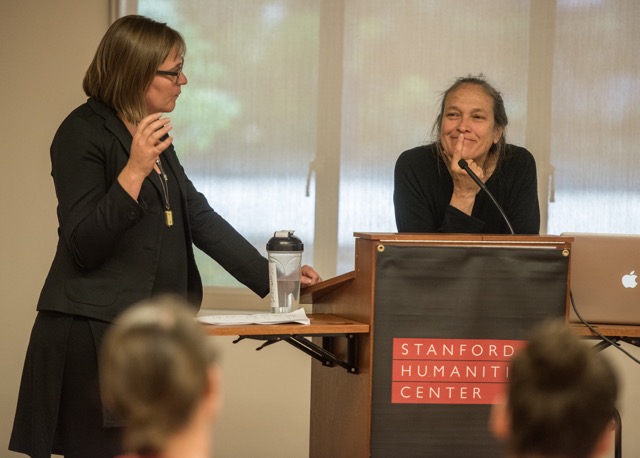
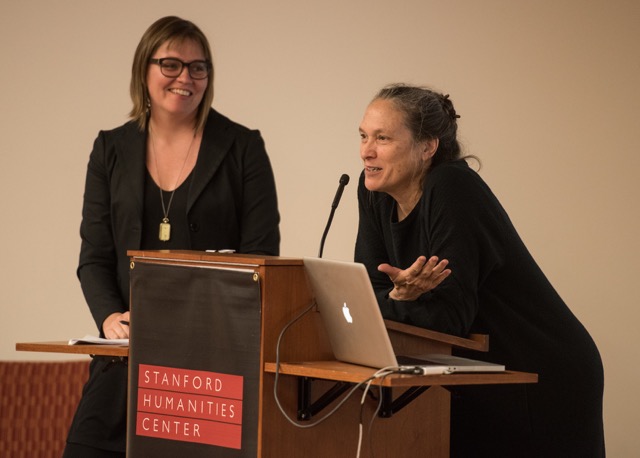
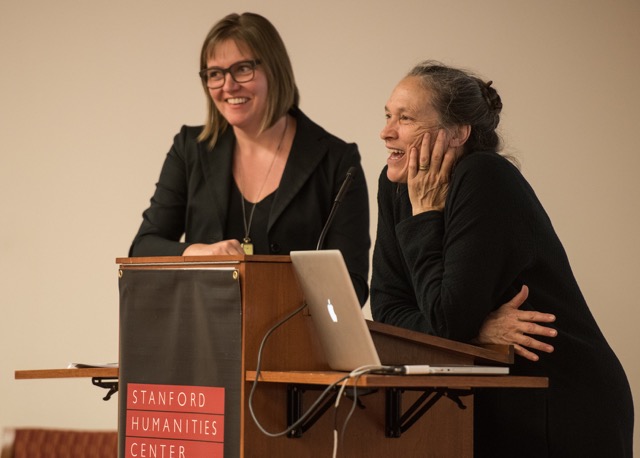
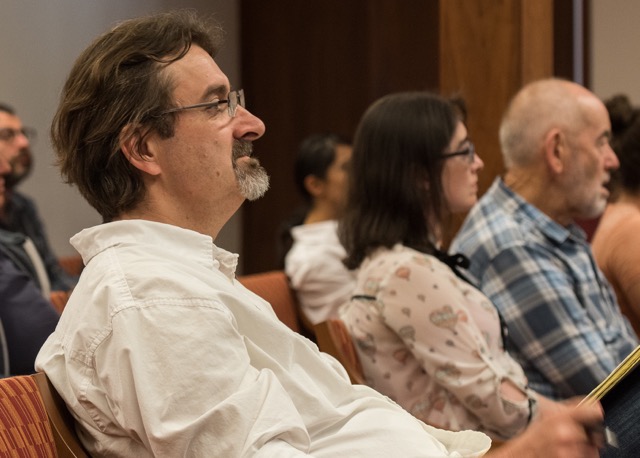
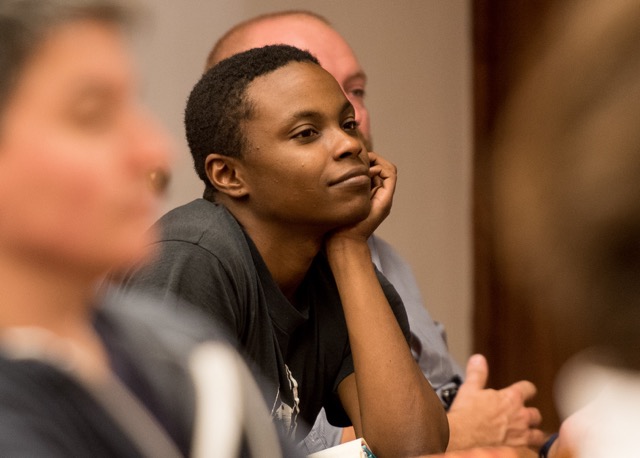
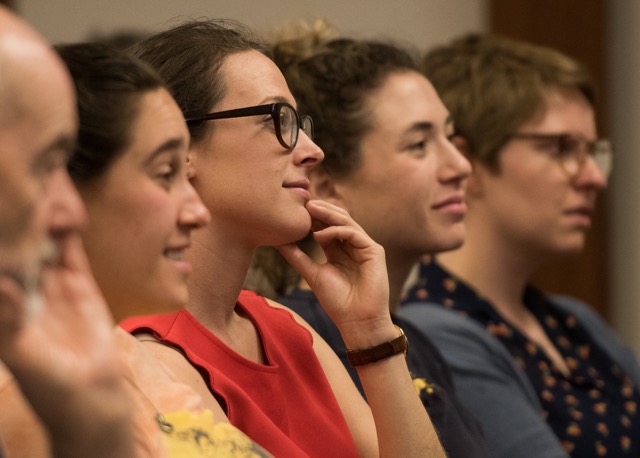
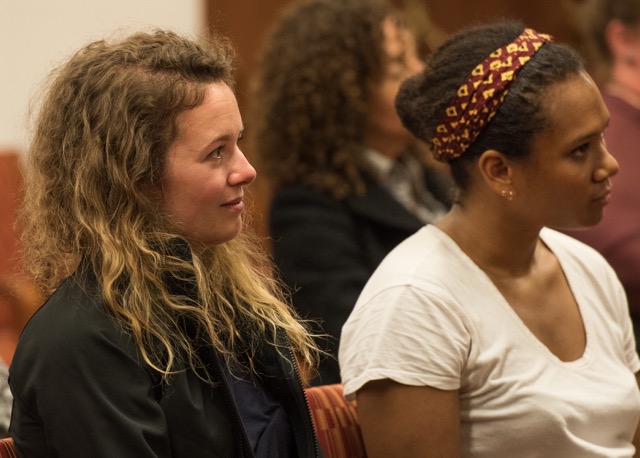
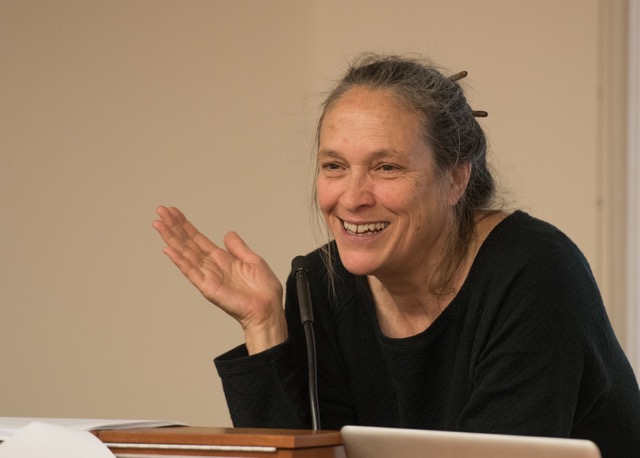
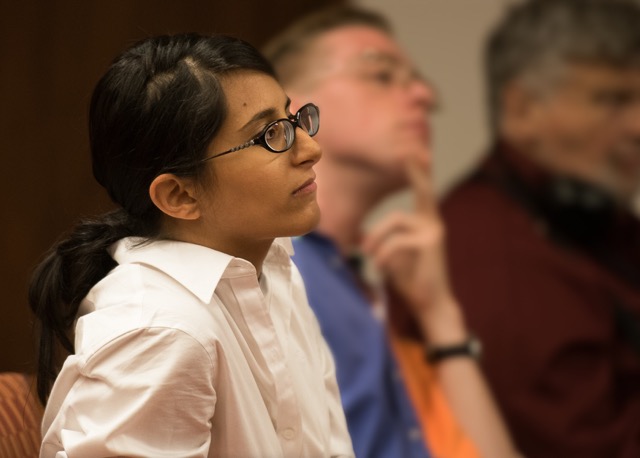
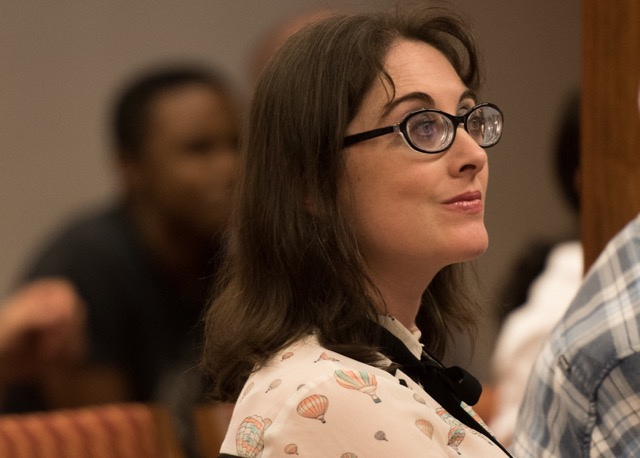
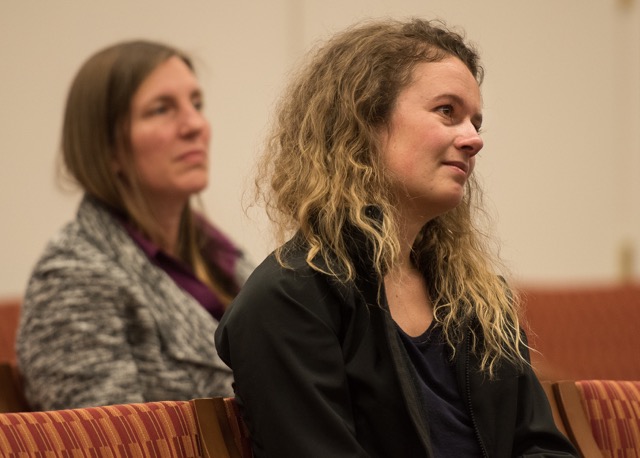
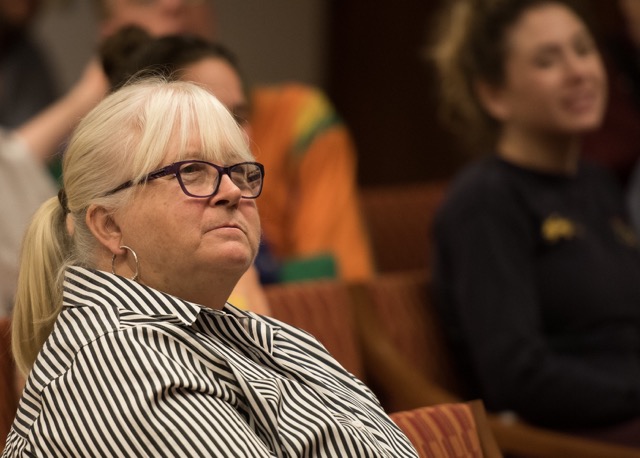
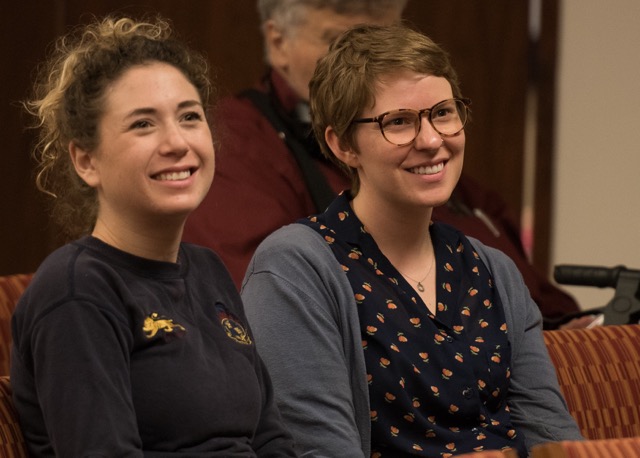
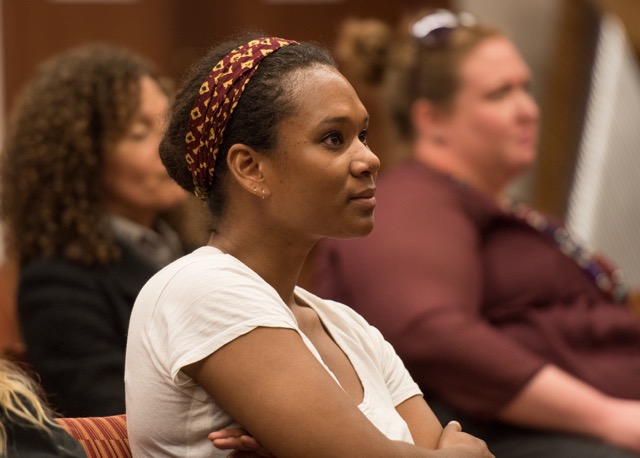
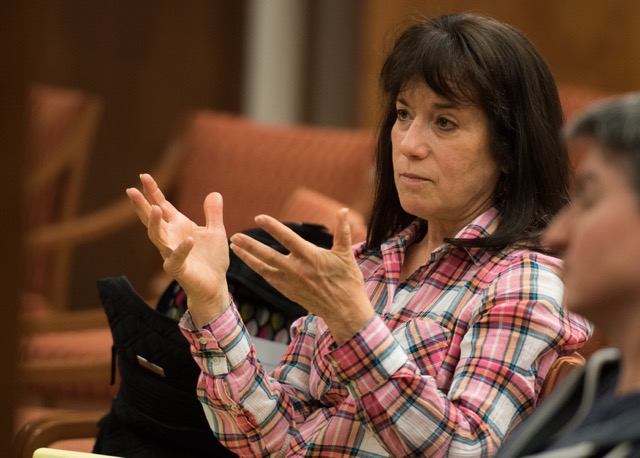
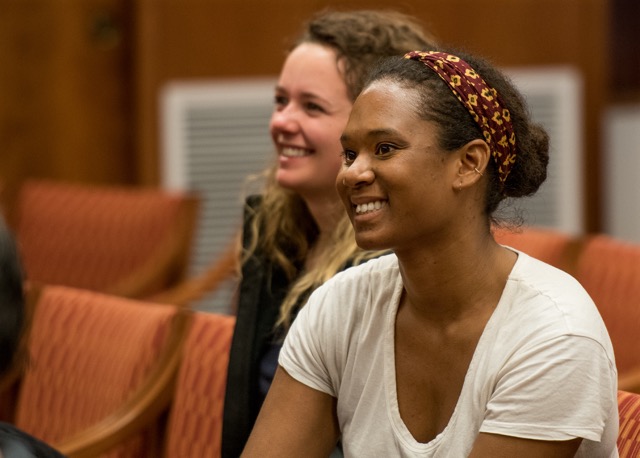
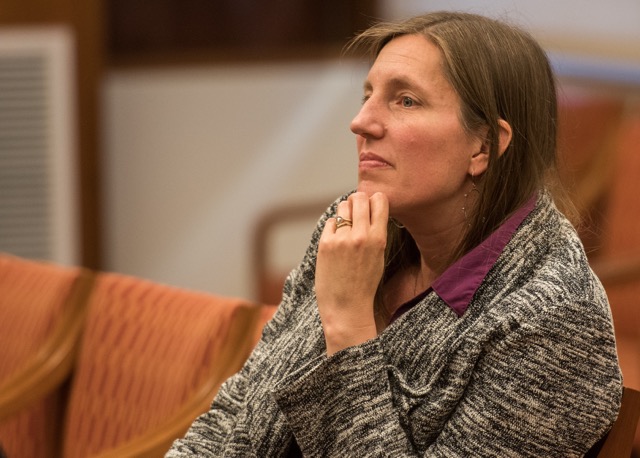
Experimental performance artist Marilyn Arsem has been creating site-specific and durational works that foreground the body since the early 1970s. Her performances are critical provocations that engage with feminist, political, environmental, and social justice issues. Since 1975, Arsem has performed in twenty-seven countries and has created more than 180 live works. Curator Edward Saywell recently wrote of Arsem, "Embracing all the senses, her performances blur traditional boundaries between artistic disciplines and between audience and artist. They provide insights into the nature of the medium, posing questions about the afterlife and legacy of performance art and offering what Arsem has called a space to consider time.” Approaching time as a question was the primary frame for Arsem’s most recent performance, 100 Ways to Consider Time, which was performed for six hours a day over 100 consecutive days at the Museum of Fine Arts in Boston.
In conversation with performance scholar and artist Dr. Raegan Truax, Arsem discussed her oeuvre and the value of performance art as a medium for political, social, and aesthetic engagement. Truax proposed that 100 Ways to Consider Time challenges neoliberal notions of social progress and heteronormative navigations of time and space. Truax writes, "During the performance, erasure surfaced as a feminist tactic. Day after day, there was no accumulation. No progress. No movement from point A to point B. As a labor of enduring discontinuity, duration was etched into Arsem’s body alone. To experience the performance therefore required suspending the desire to understand, to remark, to interpret. We were asked instead to join the artist in the risky work of becoming untimely.”
This event was generously co-sponsored by:
The Stanford Humanities Center "Feminist/Queer: Critiques and Synergies" Theodore and Frances Geballe Research Workshop, The Department of Theater & Performance Studies, The Department of Art &Art History, Stanford Arts Initiative (SAI), and The Clayman Institute for Gender Research